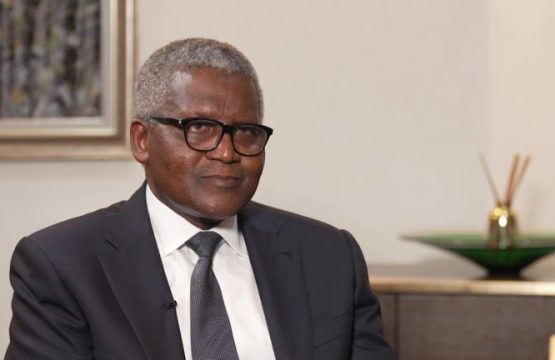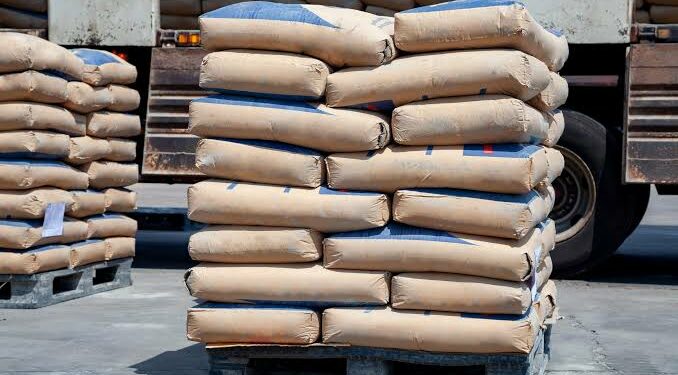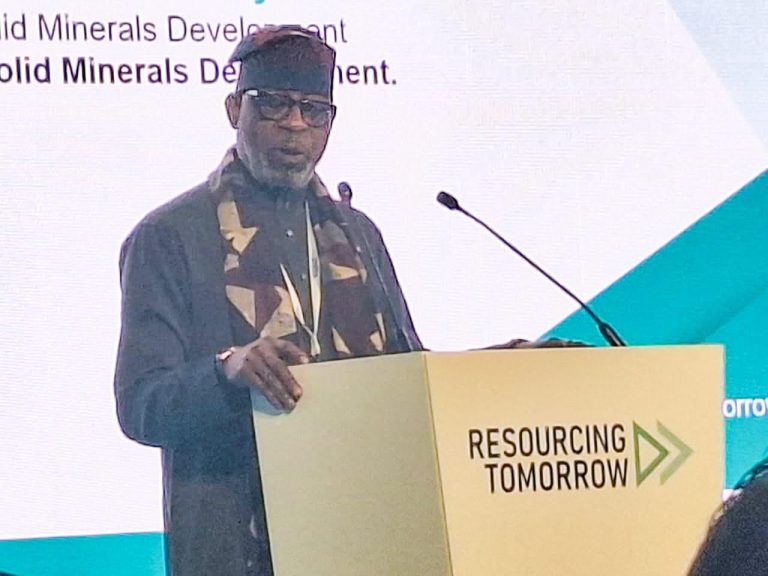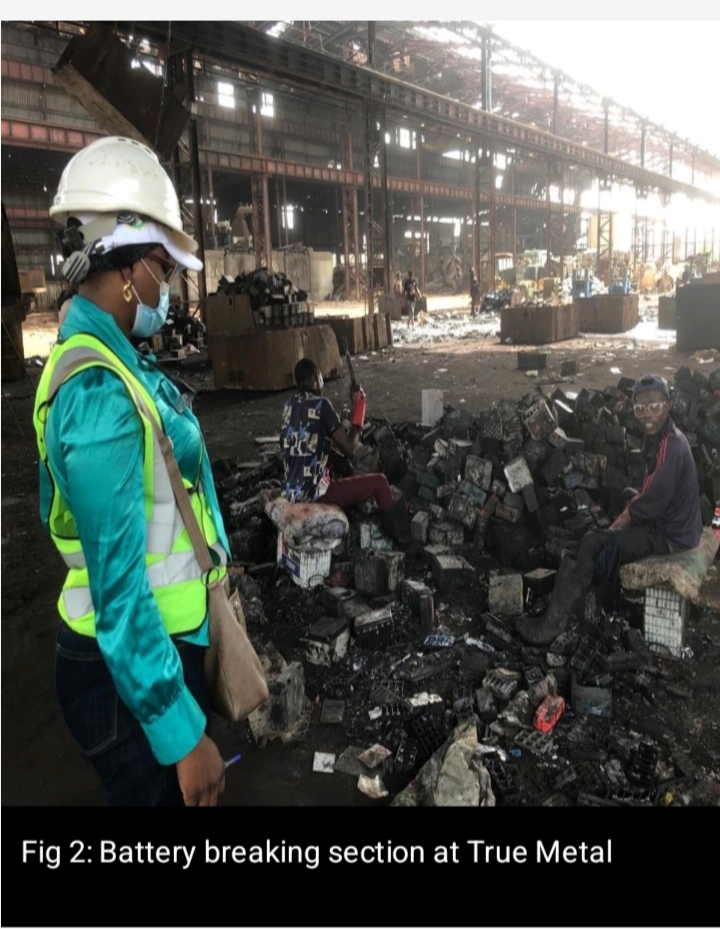By Industrial Times staff writer
For some time now, some among our tenth Republic Ministers have been fanning the flames to return Nigeria to the era of importation of bagged cement to stabilise the rising cost in the markets.
The drum beats for the importation of cement started throbbing in August 2023.
THE FIRST THREAT FOR CEMENT IMPORTATION
David Umahi, the Minister of Works, who was featured on Sunrise Daily, a Channels Television programme, told Nigerians that he would dialogue with cement manufacturers to reduce the prices of their products.
The minister said that contractors have complained over the high cost of cement in the country and made claims that importing the product would be cheaper.
“I’m going to be running figures with them (cement manufacturers) to check the cost of cement if we import it and the cost they are giving us here,” he said.
THE SECOND THREAT TO IMPORT CEMENT
Then, in March 2024, the drum beats to open borders for bagged cement to flood the markets was heightened by
Ahmed Dangiwa, the Minister of Housing and Urban Development.
The Minister, had during an emergency meeting with cement and building materials manufacturers, threatened to open borders for cement importation if the local manufacturers failed to bring down their prices.
He argued that the recent increase in the price of cement was not justified because the limestone, clay, silica sand, and gypsum used in manufacturing the product are locally sourced.
“The gas price you spoke of, we know that we produce gas in the country. The only thing you can say is that maybe it is not enough. Even if you say about 50% of your production cost is spent on gas prices, we still produce gas in Nigeria. It’s just that some of the manufacturers take advantage of the situation,” said the minister.
Dangiwa also faulted the claim by the manufacturers on how their mining equipment contributes to the high prices of cement.
” They bought the equipment a long time ago at a lower price,” he said.
He also asserted that using the current exchange rate for the price of the equipment is a mischievous excuse to increase the price of cement.
THE LAWMAKERS THREAT
The House of Representatives also called for mass importation of cement into the country.
The lawmakers are convinced that doing so will force down the prices of locally produced cement.
CEMENT MANUFACTURERS CAPACITY
Since 2002 when the former president, Olusegun Obasanjo, initiated a backward integration policy as import substitution for the cement industry, the three major players – Dangote Cement, BUA Cement and Lafarge Africa, have worked very hard to make the country self-sufficient in cement consumption, and exporting the excess to other African countries.
As of 2023, Dangote, BUA, and Lafarge had a combined installed and production capacity of over 60 million metric tonnes.
ANGER OVER PRICE HIKE
Nevertheless, the House of Representatives held a plenary on reasons for the increasing cost of cement and efforts being made to force down the price.
Gaza Jonathan Gbefwi, (SDP, Nasarawa) and Ademorin Kuye (APC, Lagos), who moved the motion, noted that the raw materials for the manufacturing of cement, which includes lime, silica, alumina, iron oxide, and gypsum are all sourced locally and not affected by exchange rate volatility.
He pointed out that the manufacturers of cement are capitalizing on exchange volatility to arbitrarily increase the price of the product, whose cost of production has not changed significantly since last year.
He accused those he called “the cement cabal” of unconscionably inflicting hardship on Nigerians as the prices of rent and associated services have increased.
Another lawmaker, Sani Madaki (NNPP, Kano) also accused the cement manufacturers of sabotage and working against the provisions of the Constitution; that what the cement manufacturers were doing was corruption.
But Sada Soli (APC, Katsina) cautioned the House against any drastic action against the manufacturers.
He submitted that even though he was on the side of the Nigerian people, Nigerians must understand that the cement manufacturers are paying for the cost of energy as they have to generate their energy using gas which is priced at an international rate.
But the lawmakers shouted him down.
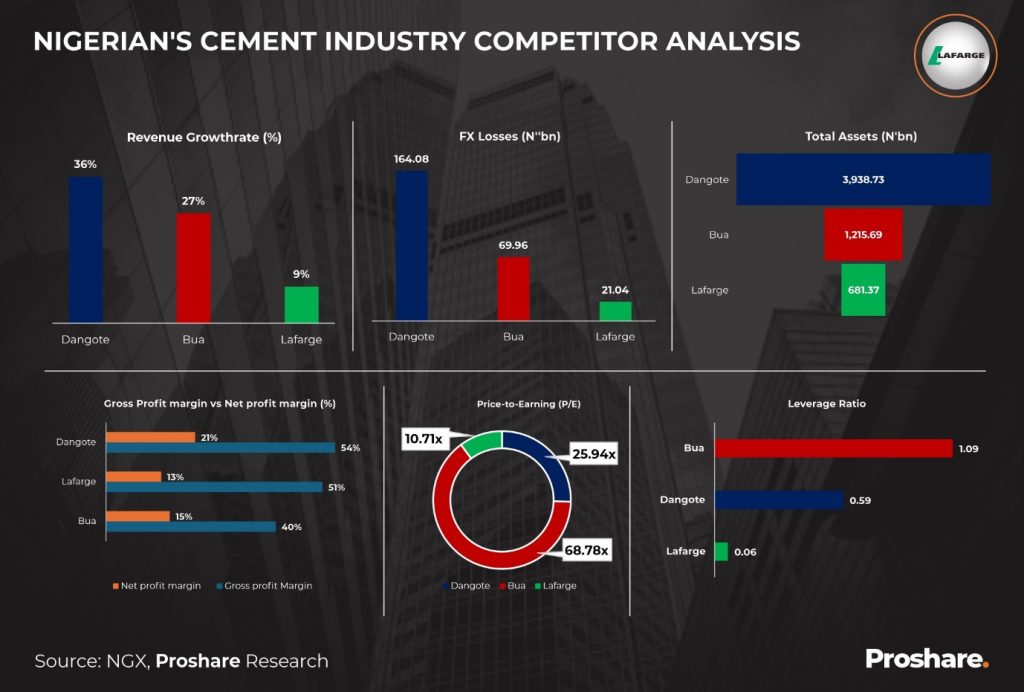
PRIVATE SECTOR REACTIONS
The Centre for the Promotion of Private Enterprise, a Lagos -based economic pressure body, reacted to the narratives.
Dr Muda Yusuf, its CEO, was unhappy with the House of Representatives reactions.
” Cement manufacturers were disparaged, denigrated and portrayed as deliberately inflicting pains on the Nigerians by arbitrarily increasing the price of cement.
“This is most unfair in our humble opinion. Such weighty allegations should be premised on painstaking study, empirical facts and evidence. It should not just be about emotions and sentiments,” he said.
He dissuaded the House of Representatives members against comments that could give a bad name to manufacturers of cement and incite Nigerians against them.
“Some of the remarks by the honourable members at the session were capable of inciting the public against the cement manufacturers and putting their huge investments at risk.
“We should not give our cement manufacturers a bad name. It is a dangerous thing to do given the huge stake they have in the Nigerian economy.
We plead with the leadership of the House to ensure moderation in the use of language to avoid adverse consequences for investors in the economy,” he said.
Yusuf added that such negative commentaries send wrong signals to investors for an economy like Nigeria’s that is seeking to industrialise, attract investors and create jobs.
Again, he said that the private sector plays a very critical role in the economy.
“They account for over 80 per cent of the nation’s GDP a per cent of the employment, and over 80 per cent of the revenue to the government.
“They deserve to be treated with respect, courtesy, civility and fairness,” Yusuf said.
Another reaction came from Otunba Francis Meshioye, the President of the Manufacturers Association of Nigeria (MAN).
His words: ” The government should protect cement end users and in my view, this is the time they should protect the consumers because cement is an essential commodity we need in this nation.
Cement is very important at this time because the government wants to have a lot of construction projects such as housing schemes and roads.
” However, the government might have told cement manufacturers to reduce their prices but they shouldn’t put it as a threat but as a dialogue of what could be done because we need to achieve this price reduction.”
He advised cement manufacturers to cooperate with the government to achieve the price reduction and not make profits at the expense of consumers.
He said: ” As a business man, you can do one thing – as long as you are breaking even, yoy will cover your costs.
The essence of going into business is to make profits and if you are making below the targeted profit, you may want to hike it up. You are conscious of the economic environment and indices.
This tells you what to adjust as the price is rising, you have to adjust accordingly . This is normal. So, if the demand is low, you may want to jerk up your mark up price ; and if the demand is low, you can adjust and say instead of making 10% let me make 8 %; and if consumers are not forthcoming, you may be forced on your own to reduce it.
“Cement is a driver and you will agree that the skyrocketing prices weren’t like that last year or two years ago.
As the prices jump the cost of taking it from the factories down to the end users, and the taxes of the government- all these indices affect the costs.
“I support the government and I’m making a plea for the price reduction by the manufacturers,” he said.
“Cement is very important at this time because the government wants to have a lot of construction projects such as housing schemes and roads.”
REDUCTION TO FORMER PRICES UNLIKELY
However, key officials of Lafarge Africa have said that it is very unlikely that the cost of cement will revert to its former price.
Head of Corporate Communications, Ginika Frank-Durugbor gave this indication at a media interaction in Calabar, recently.
Frank-Durugbor explained that the huge rate of foreign exchange in recent times has contributed to the high cost of cement.
The high costs of the ancillary inputs into the production of cement as seriously impacted by the high cost of foreign exchange are what has affected the price of cement.
“Our products will go to customers at the right price,” she said.
A WIN-WIN ACTIONS
From the foregoing, we can conclude that rather than open the borders for mass importation of cement, which will lead to dumping in the country, the government had better encourage the existing investors in the industry by looking at where the shoes are pinching them and removing the bottlenecks.
Also, the government should invite new players to set up cement manufacturing plants.
In doing so, consideration should be given first to the members of the Chief David Iweta, and Chief Ufoma Regan-led Cement
Producers Association of Nigeria (CPAN) whose production plants had been mothballed for decades.
On the part of the cement manufacturers, they should bring back their self- regulatory body- Cement Manufacturers Association of Nigeria (CMAN) to quickly handle matters that affect their members, among other things.



